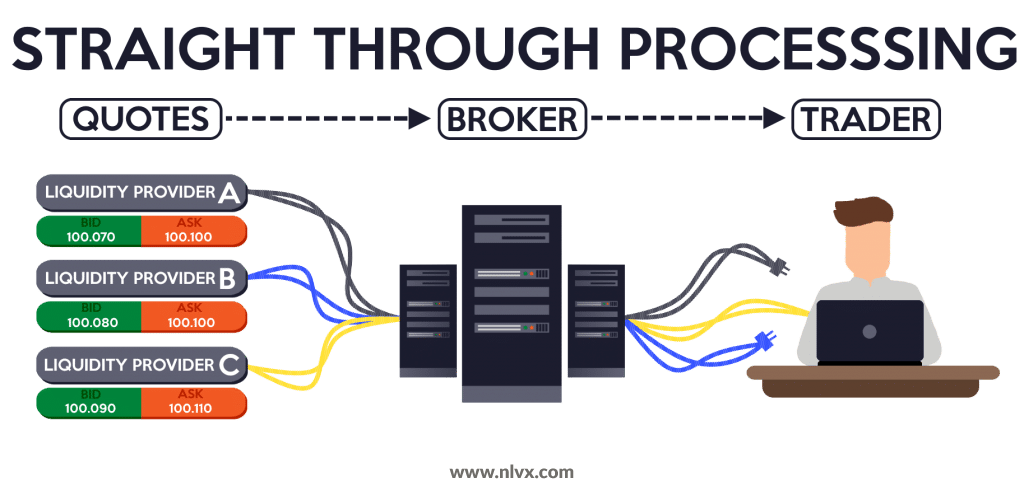
How Do We Generate Income?
NLVX makes money through swaps, interests, and commissions. We strictly forbid to elevate our profits through clients’ losses.
Open Account
NLVX makes money through swaps, interests, and commissions. We strictly forbid to elevate our profits through clients’ losses.
Open Account
| Asset Class | Commissions | Spreads | Swaps & Financing | B-book (trader losses) |
| Forex | ||||
| Metals | ||||
| Indices* | ||||
| Energies* |
We use ‘non-bank market makers,’ as well as brokers to fund & then perform Energy & indices trades. At NLVX, we generate income through a specific spread percentage earned via the associated trading counterparties. The defined counterparties don’t execute a B-book in respect to NLVX.

NLVX neglects the sustaining conflict of interest among your best-executed trades & our profits.
The answer is a strict no. NLVX doesn’t operate like other CFD providers and Forex brokers who make a profit from clients’ losses or run a B-book. Rather, we function as an ‘A-book broker’ who hedges all the market risks and thus never gain benefits through clients’ losses.
We follow the ‘A-book net’ trade model for small-level Metals & Forex trades, which go below our prime broker minimum to decrease even the minimum-possible ticket fees. There’s a chance for NLVX to earn profits through these Metals & Forex Trades, while a trader has ever made a loss, but this implements to certain scenarios only. These scenarios or cases turn out to be incidental & exceptional in terms of the ‘A-book net model.’
Scenario 1: If we opt for accepting an order from a trader and then hedging that particular trade at increased pricing.
Scenario 2: If a trader opens as well as closes a comparatively smaller trade, in succession, before letting NLVX hedge it. And then, such a trade closes in a loss scenario.
It would be inappropriate to dictate that we make profits via clients' losses, due to several reasons, which are:
Commodity & Index CFDs turn out to be ‘market tracking derivatives or synthetic index derivatives’. Contrary to Forex & Metals' trades done through a ‘prime broker,’ Commodities & Indices CFDs don't have any central counterparty by which trades get cleared & given up.
Due to the same, all the trades lead to a solo liquidity provider on the basis of per product scenario. This indicates that these products dont belong to ECN. We follow certain measures to be sure of the prices we attain through our CFD liquidity providers remain consistent while we deal with other providers.
We use ‘non-bank market makers,’ as well as brokers to fund & then perform Energy & indices trades. At NLVX, we generate income through a specific spread percentage earned via the associated trading counterparties. The defined counterparties don’t execute a B-book with respect to NLVX.
NLVX’s LP’s consist of Tier-1 banks, non-bank market makers, ECNs and dark pools. Some of our LP’s include the following: Goldman Sachs, Saxo Bank, Deutsche Bank, BNP PARIBAS, UBS, LMAX, XTX, CREDIT SUISSE, HSBC, Natwest, STANDARD CHARTERED BANK, Vidarr Capital, Citadel Securities.
All FX/Metal trades > 50,000 are executed in the real market directly and will be filled by our LP’s.
FX Trades < 50,000 are executed in the real market once the net position of small trades exceeds the batch hedge size. This is due to the high cost to hedge individual small trades.
All CFD trades go to our non-bank market makers who specialise in indices and commodities trading to ensure the tightest prices and best execution. Find more information here https://www.globalprime.com/best-execution/
B-book brokers take the opposite side of clients positions and assume the role of market maker. What this means is that clients trades are not hedged in the real market. This means the broker profits when the client loses, creating a clear conflict of interest between broker and client. B-book brokers have a vested interest in the client losing money as this becomes their profit.
An A-book broker is a broker that executes all clients trades in the real market. In this model, the broker has no interest in clients losing as client losses are not earned by the broker. There are fewer conflicts of interest between A-book brokers and their clients, and when the clients win, the broker is better off - as they are making the broker commissions.
NLVX does not run a B-book. This means that we do not profit from client losses or trade against our clients. We believe the role of a broker is merely to act as the intermediary between the banks.